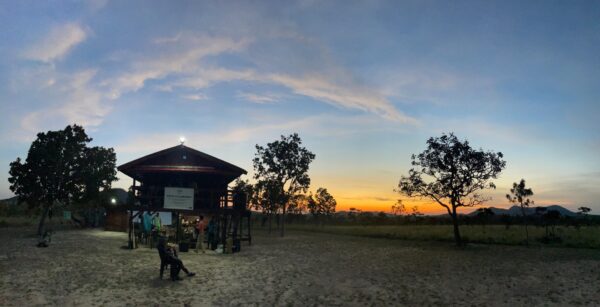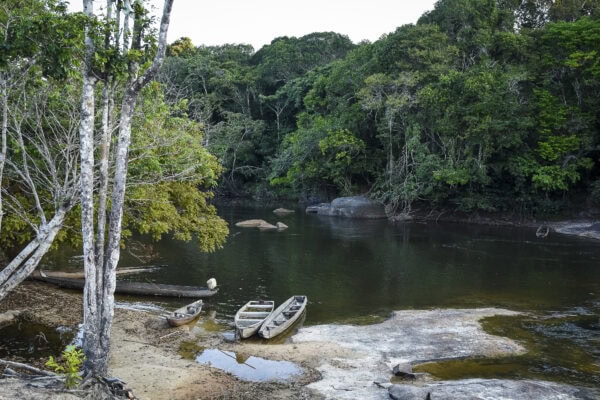Last year, in the rainforests of Suriname, ACT commenced a sustainable stingless beekeeping initiative with indigenous and Maroon communities. Through this project, ACT is promoting sustainable and organic honey harvesting, preserving the forest habitat of bees, strengthening traditional knowledge and enhancing alternative livelihood opportunities in remote communities. Across the Amazon, populations of stingless bees have declined with deforestation, and indigenous beekeepers are less frequently passing on the tradition to younger generations as they move to urban areas in search of economic opportunities.
Stingless Bee Project | Amazon Conservation Team from Amazon Conservation Team on Vimeo.
Stingless bees, which include many species that play an important role as pollinators and are quite diverse in the rainforests of the Neotropics, preferentially make their perennial nests in the base of hollow trees. They have historically played an important role in the ethnobiology of the indigenous peoples of the Americas, who have semi-domesticated them in some regions. The waxes produced by these bees have been employed for creating artisanal artifacts (like candles) as well as medicine. The biological properties of honey from the Amazonian stingless bee Tetragonisca angustula – particularly its antimicrobial activity – are well documented. And significantly for ACT’s work to protect traditional cultures, in the cosmology of many indigenous peoples, social insects—including stingless bees, ants and wasps—play a central role.
Share this post
Bring awareness to our projects and mission by sharing this post with your friends.




